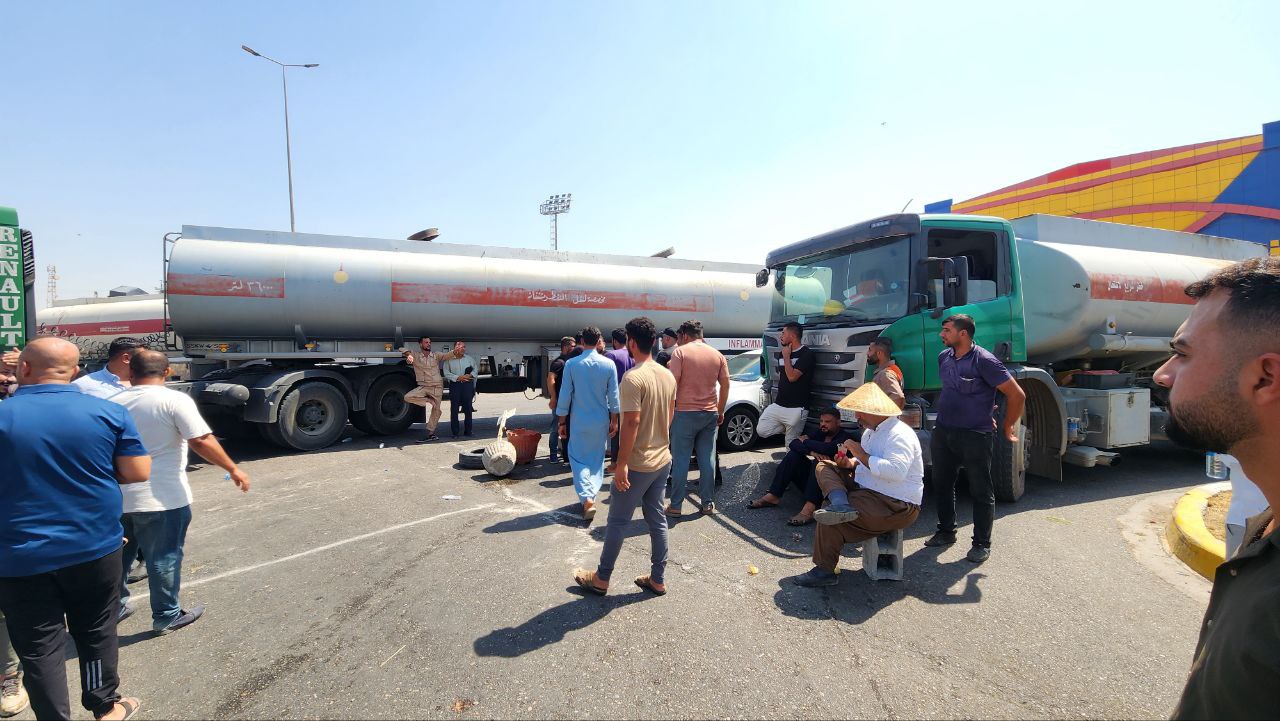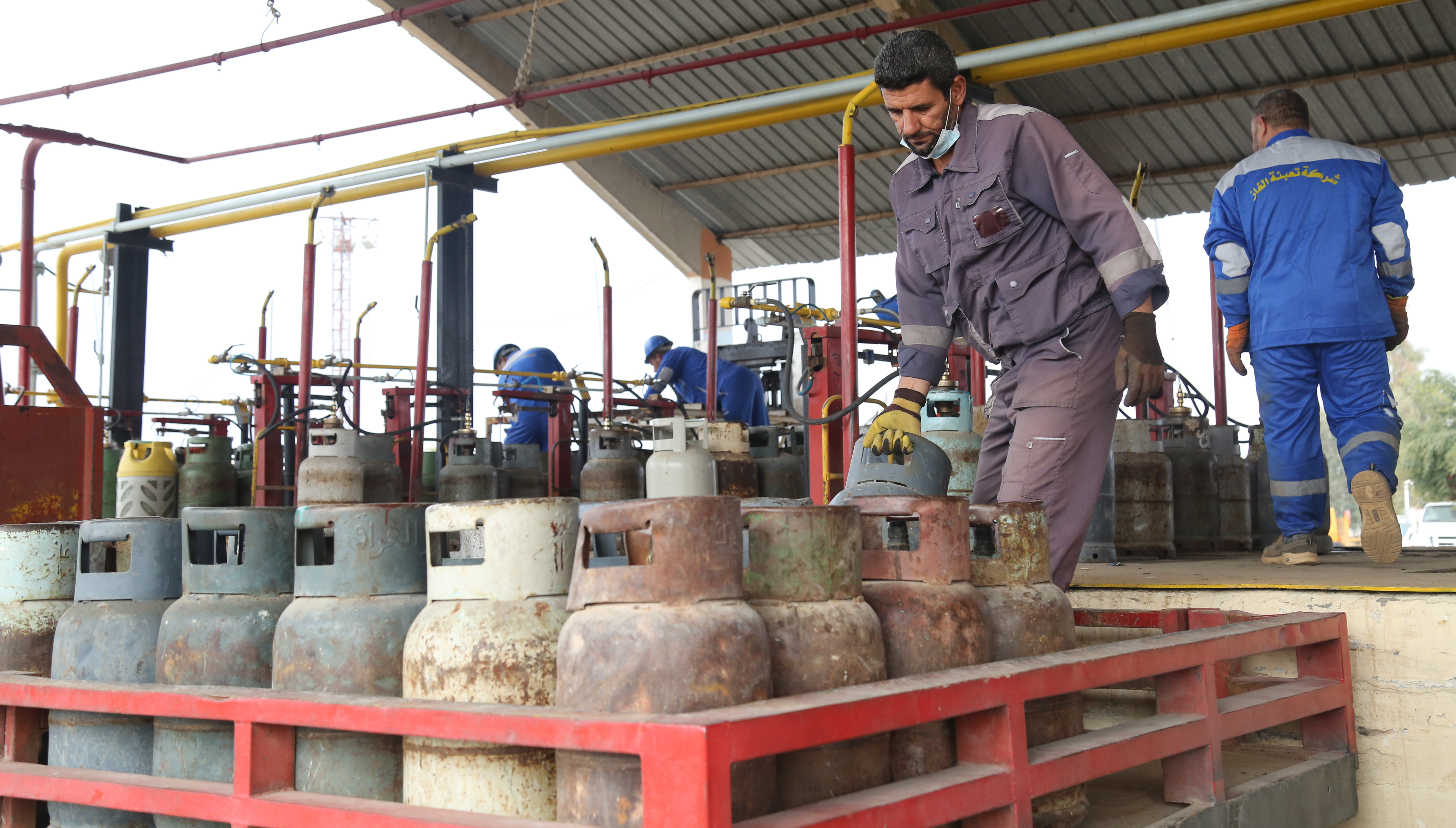The Qaninati (My Canister) application has been temporarily suspended and has not been canceled, an application allows citizens to fill a gas cylinder with one click, but they will have to pay an additional amount of one thousand Iraqi dinars.
The system was approved by the Iraqi Council of Ministers on July 25, 2024. It is a service for delivering cooking gas cylinders filled by the Oil Products Distribution Company to homes and neighborhoods through an application that is now available in 13 Iraqi provinces.
Fawzia Mohammed, a resident of the Shorja neighborhood in Kirkuk, said, "We are a large family, two gas cylinders are not enough for us, and the filling price is not suitable for those with limited income because the cost has increased by one thousand dinars."
The cost of filling a gas cylinder in Kirkuk was 7,000 IQD (USD5), but with the implementation of the new system that includes the province, the cost will rise to 8,000 IQD, and each family can only fill two cylinders per month.
However, Ahmed Omar, a resident of Al-Filaq neighborhood, said, "The decision is good, it will put an end to the gas crisis and the gas cylinder will be delivered to our homes, but some complain about the high price."
One thousand dinars of the 8,000 IQD filling cost will go to the oil products distribution company and 1,000 IQD to the street vendor responsible for delivering gas to homes.
Subsidized fuel and gas policy is followed since many years in Iraq which had a central state-run policy in all sectors up to 2003, when Saddam Hussein was ousted, per which the Iraqi government through the public sector was providing all services.

The decision sparked protests by street gas vendors in Kirkuk, after they were obligated to fill only two cylinders per family, while there were no limits before.
Bakhtiar Ramadan, a gas vendor in Kirkuk who participated in the demonstrations organized by gas vendors over the past two days, said, “If the system is not canceled, we will stop selling gas.”
According to the system, the vehicle of the gas vendor will be equipped with a GPRS tracking system and the vendor will deliver gas to homes near his location, which will restrict their ability to sell gas cylinders.
A spokesman for the Oil Products Distribution Company declined to comment on the “Qaninati” system, but stressed in a meeting with gas vendors on July 29 that the system will be temporarily suspended yet will not be canceled until the Council of Ministers is addressed, gas vendors told KirkukNow.
Iraq holds the second-largest oil reserves following Saudi Arabia but years of conflict and sanctions have left its refineries in dire straits, with the country now relying heavily on imports of refined oil and gas products despite daily export of over three million barrels of crude oil per day.
The northern oil-rich city of Kirkuk, located 238 kilometers north of Baghdad, is an ethnically mixed province for 1,7 million Kurds, Sunni and Shiite Arabs, and Turkmen. It has long been at the center of disputed territories between Baghdad and Erbil.
This material was produced as part of Expanding the Role of Women in Covering Environmental Issues program implemented by KirkukNow with the support and funding of the Federal Foreign Office of the Federal Republic of Germany.





